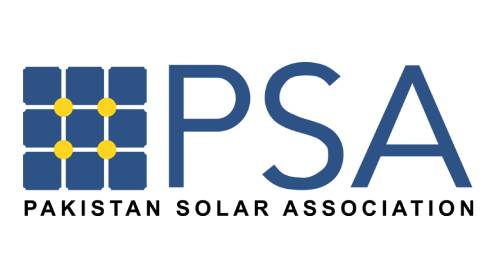The Pakistan Solar Association has severely decried the unchecked import and sale of substandard solar panels in the Pakistani markets by unaccredited dealers who brazenly fleece unsuspecting consumers in the country.
The PSA raised as these concerns as its leadership recently held an interactive session with the media persons in Lahore to highlight the issue of low-quality solar products freely being available in the market much to the agony of the power consumers. According to the PSA leadership, the unchecked availability of such poor-quality solar products had been hampering the government’s drive to maximize clean power production in Pakistan based on abundantly available renewable energy resources. The PSA leaders lamented that consumers’ confidence in renewable energy sources would phenomenally decline if they continued to face exploitation at the hands of unauthorised traders involved in the import and sale of such substandard solar panels.
They said it was high time that the relevant authorities adopted strict control and check measures to properly regulate the Pakistani clean energy market to minimize the instances of exploitation and fleecing of customers by unauthorised traders.
“The influx of substandard solar materials is a substantial loss for consumers who invest in these products with expectations of long-term savings and reliable energy solutions,” said Chairman of the PSA Amir Chaudhary while speaking at the interactive session with media persons.
He mentioned that these substandard products result in inefficiencies, frequent breakdowns and increased maintenance costs, ultimately undermining the several intended benefits of solar energy.
The PSA leaders cautioned that if the trend of importing low-quality solar panels continues, Pakistan risks becoming a dumping ground for the world’s substandard products. This could hinder the country’s renewable energy transition efforts and severely damage consumer trust in solar technology.
Chaudhary also clarified that the third-party importers flooding the market with inferior panels are not PSA members. “These importers are operating outside the quality assurance and ethical standards regime that our association upholds,” he said, adding that “their focus on profit margins over product quality is compromising consumer safety and eroding the nation’s reputation in the global market.”
Chaudhary also noted that the excess supply of B-grade solar panels from China is being offloaded by third-party traders, who are then selling these unworthy products to unsuspecting buyers in Pakistan without any warranties or assurances. The PSA has called on the government and relevant regulatory bodies to take immediate action against these unauthorized importers. It urged for stricter enforcement of quality standards and regulations for the import and sale of solar products. The association also advised consumers to verify the credentials of suppliers and opt for PSA-affiliated manufacturers and importers to ensure they are purchasing high-quality and certified solar panels.
Pakistan imports solar panels from 29 different countries. The country has experienced a 77 per cent increase in solar panel imports from January 2022 to December 2023. The federal government has issued SRO604 in the Import Policy Order to regulate the import of solar PV equipment and maintain international quality standards.
Imported solar panels must meet specific requirements, including a type test certificate (TTC), certificate of conformity (CoC), and pre-shipment inspection certificate (PSIC).
The solar market in Pakistan is rapidly expanding, with an anticipated installed base of 1.41 gigawatts in 2024 and 9.53 gigawatts by 2029, reflecting a compound annual growth rate (CAGR) of 46.55 per cent during this period. This growth is driven by increased adoption of solar PV systems, falling solar panel costs, and growing environmental awareness. The utility sector is expected to lead the market, with the government targeting 30 per cent of the nation’s power to come from renewable sources by 2030.
PSA demands strict regulation of Pakistani clean energy market to stop sales of substandard solar products







